Understanding CBD Product Testing Terminology
Any discussion of cannabinoids must begin by defining the various terms which will be included in that discussion. Cannabis is a genus of flowering plants that are generally agreed to be comprised of three species: Cannabis sativa, Cannabis indica and Cannabis ruderalis.
Cannabinoids are naturally occurring constituents of the Cannabis plant which can be isolated for specific commercial and medicinal uses. Two of the most commonly discussed cannabinoids are 9-THC (Δ-9-tetrahydrocannabinol) and CBD (Cannabidiol).
Historically, the Cannabis genus of plants have been referred to by many names including “marijuana” and “hemp” but here in the US and especially since 2018, Industrial Hemp has been specifically defined (for regulatory purposes) as Cannabis sativa having a 9-THC content less than 0.3% (on the dried basis) which is sourced from a grower of Industrial Hemp licensed under the Agriculture Improvement Act of 2018 (better known as the 2018 Farm Bill, PL 115-334).
Federal Regulation of Cannabis and Cannabinoids
Prior to 2018, the US Department of Justice categorized all species of Cannabis and cannabinoids derived from them as Schedule I Controlled Substances, meaning they were categorized as being illegal substances having a high potential for abuse and no legitimate medical usage.
The 2018 Farm Bill removed Industrial Hemp (as defined above) from the Schedule I category of Controlled Substances, thereby opening the door for its usage in commercial applications. The Farm Bill however preserved the FDA’s authority over hemp products that fall under its jurisdiction.
Thus products that incorporate Industrial Hemp or cannabinoids derived from Industrial Hemp into their composition must meet any applicable FDA requirements and standards, just like any other FDA-regulated product.
Since the FDA has already approved a New Drug Application for a CBD drug product (Epidiolex) and has already approved several Investigational New Drug Applications for 9-THC, Section 201(ff)(3)(B) of the Food Drug and Cosmetic Act specifically forbids the usage of either CBD or 9-THC as dietary supplements or ingredients for human food or animal food.
Additionally, CBD and 9-THC may not be added to OTC drug products as active ingredients unless first approved by the FDA through a New Drug Application.
Except for CBD and 9-THC, the FDA does not currently restrict the use of any other cannabinoids derived from Industrial Hemp for use in human food or dietary supplements.
It should be noted that in December of 2018, the FDA granted GRAS (Generally Regarded As Safe) status to three hemp-seed derived ingredients for use in human food: hulled hemp seed, hemp seed protein powder, and hemp seed oil.
This decision was based upon the fact that the seeds of the hemp plant do not contain CBD or 9-THC.
State Regulation of Cannabis and Cannabinoids
At the State level, there is tremendous variation in the regulation of Cannabis and cannabinoids.
Some states have legalized all species of Cannabis and the cannabinoids derived from them for use as a medicine, recreational drug, food ingredient or dietary supplement.
Other states simply observe Federal law while others have adopted intermediate positions between total legalization and what Federal law currently allows regarding the use of Industrial Hemp.
This contradicting patchwork of Federal law and State regulations has given rise to many complications affecting members of the marijuana industry.
For example, some banks have adopted policies of not providing loans to industry members participating in activities beyond what Federal law currently allows, even if they are located within a state which has ‘legalized’ all Cannabis species; Some courts refuse to hear cases brought by industry members in attempts to recoup money owed them by vendors or client organizations since they are viewed as participating in “illegal” activities which violate Federal law.
Clearly, until there is a harmonization of Federal and State laws, this legal turmoil will continue to plague the marijuana industry.

Commercial Usage of Cannabis and Cannabinoids
Although Cannabis contains many cannabinoids, terpene compounds and other naturally occurring components of biological interest, 9-THC and CBD have thus far received the most interest for commercial applications.
In States where all species of Cannabis have been legalized, a wide range of products is offered which contain 9-THC and/or CBD including recreational drug “candies” (e.g., gummy bears), food or beverage items and even some dietary supplements – all in direct violation of Federal law and the Food, Drug and Cosmetic Act.
Of a far less controversial nature, many cosmetic and personal care products now include CBD derived from Industrial Hemp as a featured ingredient.
Dietary supplements free of CBD and 9-THC but containing other cannabinoids and components derived from Industrial Hemp (e.g., hemp seed oil) are legal in all jurisdictions and are also growing in popularity.
So What Can We Conclude From All of This?
- 9-THC and CBD are only two of the many cannabinoids naturally occurring in all species of the Cannabis plant.
- For regulatory purposes, Industrial Hemp is defined as the Cannabis species Cannabis sativa having a 9-THC content less than 0.3% (on the dried basis) which is sourced from a grower of Industrial Hemp licensed under the Agriculture Improvement Act of 2018 (better known as the 2018 Farm Bill, PL 115-334).
- Federal law allows the use of Industrial Hemp and constituents derived from it in a wide range of products, however, some uses are restricted by FDA.
- The Food, Drug and Cosmetic Act strictly forbids the use of 9-THC and/or CBD as dietary supplements and ingredients in human food, animal food and OTC Drugs. (Dietary supplements, human food, animal food and OTC Drugs may contain Industrial Hemp or components derived from Industrial Hemp so long as 9-THC and CBD have been excluded.)
- Cosmetic and Personal Care products may legally contain Industrial Hemp and its derivatives including CBD at any level and 9-THC below 0.3%.
- Contradictions between Federal and State laws have given rise to significant legal and business issues which currently plague the marijuana industry beyond the usage of Industrial Hemp in regulated products.
Let CPT℠ assist with your CBD Product Testing from your Cannabis-derived raw materials to the final Cannabinoid-containing products.
CPT℠ is an ISO/IEC 17025 accredited (Accreditation # 80071) laboratory for conducting Cannabinoid Content Testing in raw materials and finished products. We can assist in determining the quality and legality of your raw materials and finished products regardless of their form.
Cosmetic/personal care products, foods, dietary supplements and beverages all fall within our area of expertise when testing for specific cannabinoids such as 9-THC and CBD or compiling a complete cannabinoid profile. Why not contact us today?


